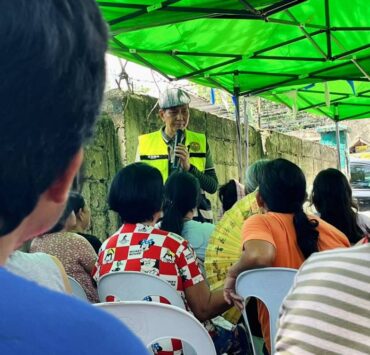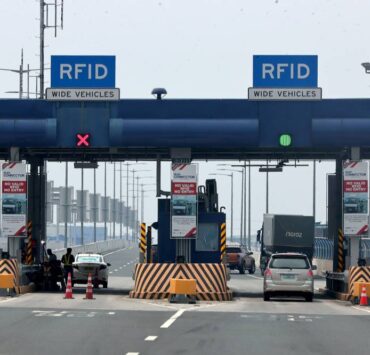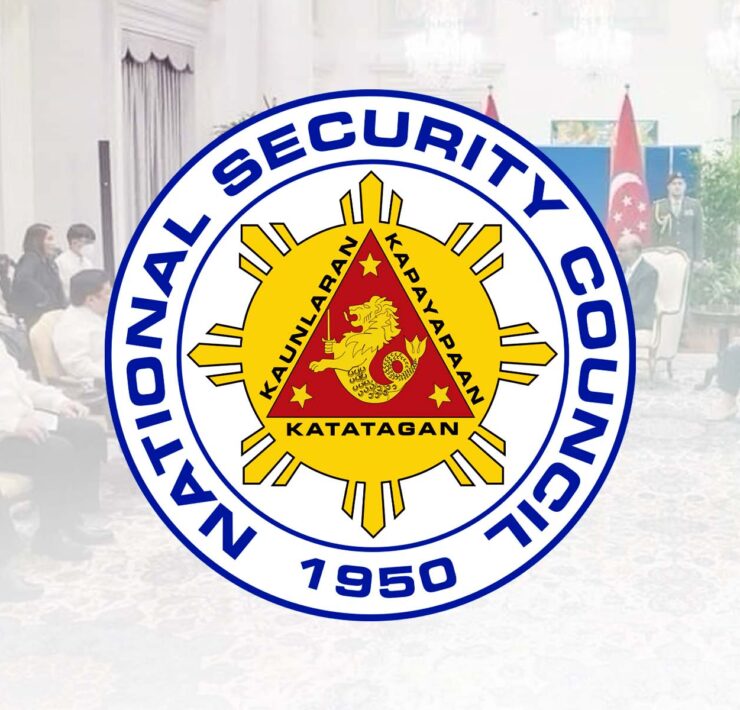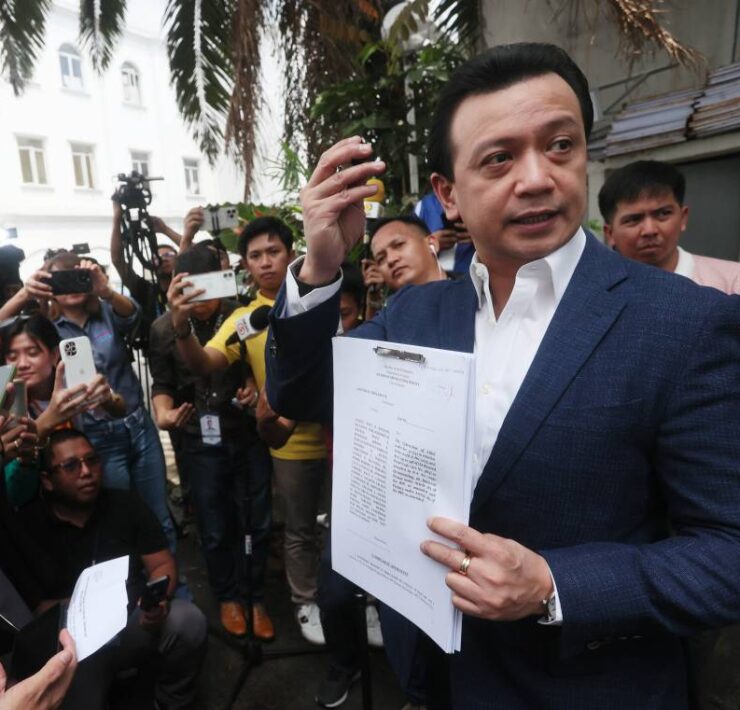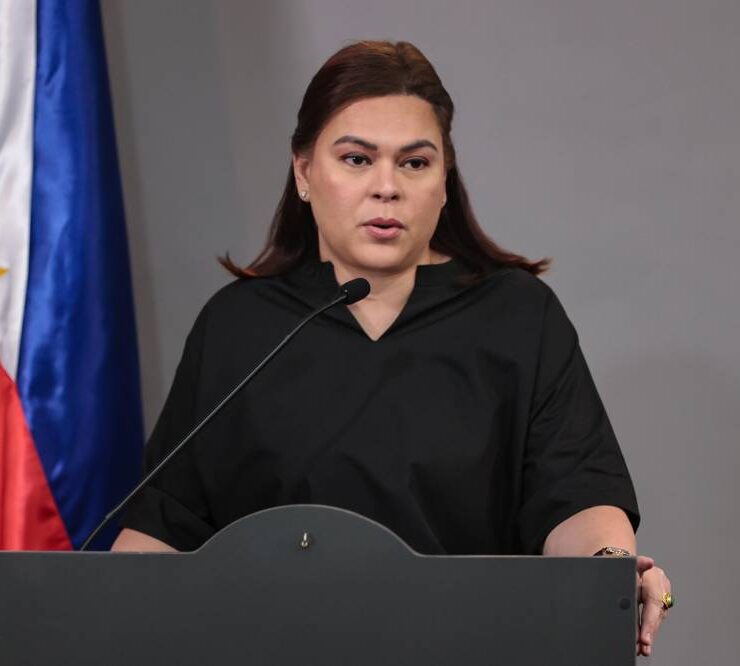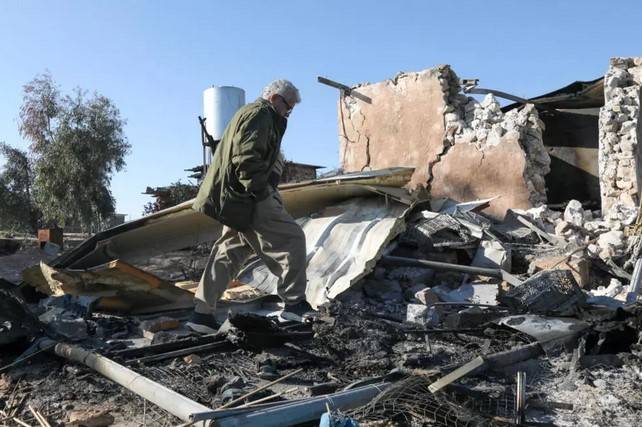Rewards of up to P1M led to ‘narco-pol’ slays
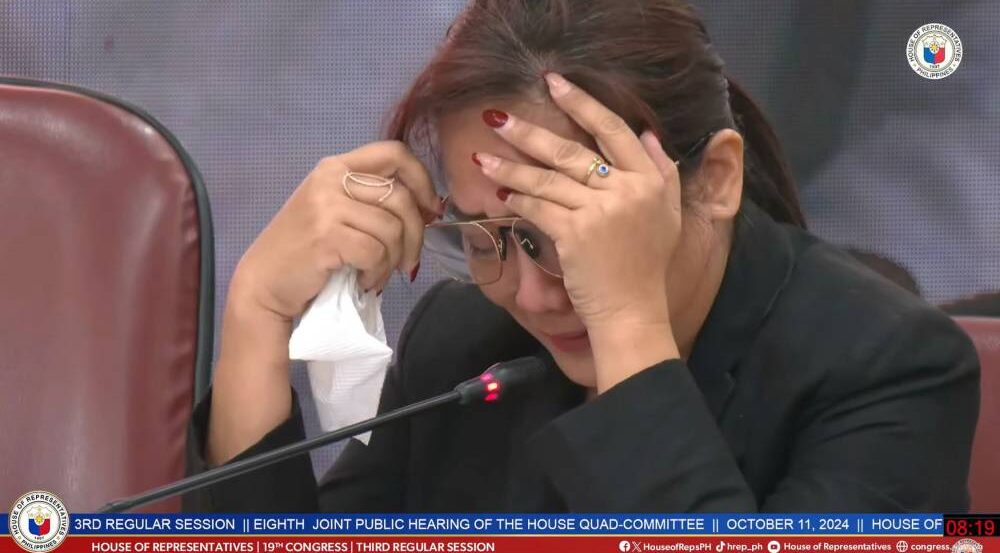
The murders of suspected “narco-politicians,” including Tanauan City Mayor Antonio Halili who was felled by a sniper’s bullet in front of city hall employees in 2018, were a result of ex-President Rodrigo Duterte’s offer to reward policemen with as much as P1 million for killing drug suspects, according to a former police official.
Blowing the whistle on her former boss, retired Police Col. Royina Garma provided chilling details of Duterte’s brutal crackdown on narcotics during the grueling 14-hour hearing of the House quad committee that lasted until the wee hours of Saturday.
Fielding questions from lawmakers, Garma finally admitted her close ties with Duterte after previously denying that she had the former president’s ear on matters involving the Philippine National Police.
She was overcome with emotions as she read her sworn statement, which she said would endanger her life and that of her family, friends and classmates from the PNP Academy (PNPA) Class of 1996.
Unusual meeting
“I realized that the truth will always set us free and at least I will be able to contribute if we really want to make this country a better place for our children,” Garma said in between sobs.
In her tearful testimony, she said the policy that Duterte implemented when he was still the Davao City mayor involved a reward system that encouraged PNP personnel to kill drug personalities.
Duterte has not commented on her testimony.
Garma said Duterte apparently grew fond of her since it was unusual for the then mayor to meet a female PNPA graduate. She was 23 when she first met him, she said.
Duterte appointed her as general manager of the Philippine Charity Sweepstakes Office (PCSO) in 2019 after her early retirement from the service.
Garma said that in May 2016, the then president-elect called her to meet him to ask for her help in organizing a special police task force that would implement the “Davao model” of his antidrug campaign on a national scale.
Grilled by Santa Rosa City Rep. Dan Fernandez, Garma said that it was “public knowledge” that many high-profile killings from 2016 to 2022 were connected with the Duterte administration’s drug war.
Among the targets were alleged drug lord Melvin Odicta, who was gunned down with his wife, Meriam, in August 2016 in Malay, Aklan, she said.
“(There was also) Mayor Halili and the other mayors,” Garma told Fernandez.
Pressed to elaborate, Garma said that she only heard “rumors” about Halili’s murder, which she claimed was carried out by “imported” gunmen, referring to “operatives” deployed to various places.
“One of them even bragged about it,” she said. A certain police “Major Albotra,” had boasted that he and his group killed Halili, Garma said.
“They were behind the killing of Tony Halili?” Fernandez asked. “Yes,” she replied.
‘Little Digong’
Halili, who earned the moniker “Little Digong” for talking tough against illegal drugs and crimes, was the ninth mayor killed after Duterte launched his antinarcotics campaign.
In January 2017, Halili and over 1,000 mayors separately met with Duterte in Malacañang to clear their names after they were included in his “narcolist.”
Responding to a question from Kabataan Rep. Raoul Manuel, Garma owned up to her role in implementing Duterte’s policy against illegal drugs when she was assigned as a police station commander in Davao.
According to her, she and the other police officers usually submitted to the Davao City Hall a monthly report of successful antidrug operations that resulted in the filing of cases.
For every case they had filed, she said they received P5,000 as “refund” for operational expenses. She said they may request for a bigger amount if they carried out a major operation.
‘Paymaster’
If a suspect is killed in a legitimate operation, a corresponding amount is given out. ”So that’s how it works,” Garma said.
Manuel asked Garma if it was true that a group of “Davao Boys and Girls” was behind the Duterte administration’s drug war.
“Whatever name you give it, for me it’s not relevant,” she said. “If that is how you politically describe it, then that’s it.”
In response to a question from Antipolo City Rep. Romeo Acop, she said it was then Police Col. Edilberto Leonardo, who became the “paymaster” of the antidrug operations.
Leonardo has stepped down from his post as commissioner of the National Police Commission. (See related story on this page)
“From what I understand, it started from P20,000 up to P1 million. But I am not familiar with the ‘bracketing,’” Garma said.
She said Leonardo and his trusted men were tasked with making the list of slain drug suspects and the corresponding cash rewards for operatives involved.
It was Leonardo who had prepared Duterte’s narcolist and had the authority to remove any name from the list, Garma said.
The funds, she claimed, were deposited in the bank accounts of Peter Parungo, a suspected rapist, who allegedly told her that the money came from a certain “Muking.”
Garma identified Muking as Irimina Espino, who had previously served as assistant secretary in the Presidential Management Staff under Duterte.
Reporting to Go
According to her, Leonardo had reported the drug war expenses directly to then Special Assistant to the President and now reelectionist Sen. Christopher “Bong” Go.
“Regarding the plan to implement the ‘Davao model’ nationwide, do you confirm that Go has a role with that?” Manuel asked Garma.
“From my understanding, it would appear (that way) because he regularly met with Leonardo,” she responded.
Go, Duterte’s longtime and most trusted aide, vehemently denied Garma’s claims, saying her testimony and allegations were “clear diversionary tactics to muddle the true issue she is facing” regarding the killing of PCSO board secretary Wesley Barayuga.
Police Lt. Col. Santie Mendoza had earlier testified before the House four-panel body that Garma and Leonardo were the brains of Barayuga’s murder in 2020. Garma and Leonardo had denied any role in Barayuga’s killing.
“As the special assistant of the president, I have no participation whatsoever, directly or indirectly, in the operational requirements of the war on drugs,” Go said in a statement.
“I also want to clarify that there is no reward system that was implemented in exchange for the life of any person,” he said.
Central figure?
Go said Duterte, who had repeatedly threatened to kill government officials and other individuals included in his narcolist, had always respected the rule of law.
“The former president has stated clearly numerous times that his administration never sanctioned nor tolerated any form of senseless killings,” the senator said.
Human Rights Watch senior researcher Carlos Conde and assistant counsel to the International Criminal Court (ICC) Kristina Conti said Go could be among those who were most responsible for crimes committed during the drug war that killed thousands.
They believe that Garma’s testimony made Go appear to be a more central figure in the war on drugs than initially thought.
“He was always in the thick of things, even when he was Duterte’s man Friday in Davao. Nothing went to Duterte if it didn’t go through him first,” Conde told the Inquirer. “As to whether he’s one of the most responsible, I can’t say but his actions, according to the testimony by Garma, certainly suggest so.”
Conti said the ICC should investigate everyone responsible and that Garma’s statement indicated that Go was “key in the whole scheme.”
“If he is shown to be indispensable to the operations, then he bears greater responsibility. That inches him closer to an ICC trial,” she said.
Conde and Conti said Garma’s testimony lent credibility to the ICC’s legal theory that Duterte enabled the killings through a mix of directives, rewards and public declarations.
Conde said the ICC chief prosecutor would consider Garma’s testimony “with keen interest as these are the type of confirmations that they need.”
“The question now is if the Marcos administration will help the ICC investigators access those witnesses and testimonies, and we hope it does,” he said.
Conti said it was in the best interest of the Marcos administration to cooperate under the principle of continuing obligations to the Rome Statute, the treaty that established the tribunal.
The Philippines withdrew from the treaty in 2019 on orders of Duterte.














